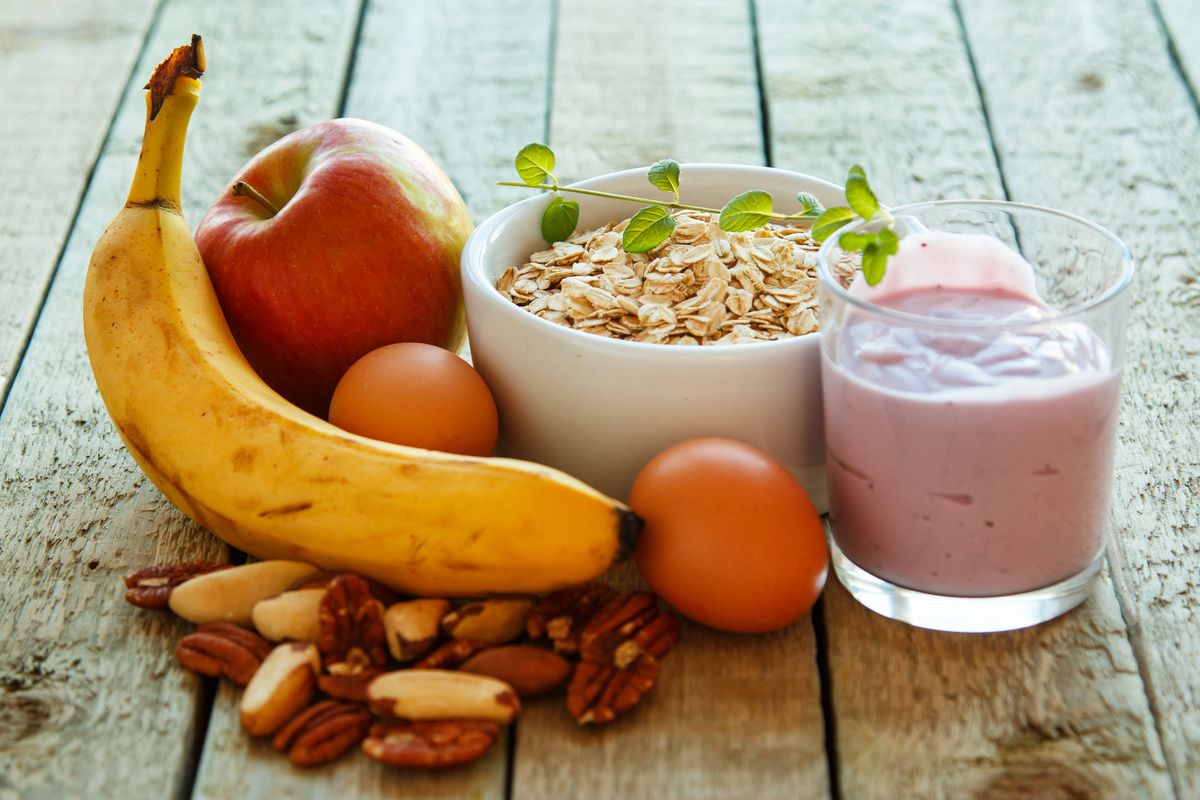Breakfast has earned its reputation as the "most important meal of the day" for good reason. It not only fuels and energizes you, but also maintains stable blood sugar levels and enhances cognitive function. However, selecting the right breakfast foods for optimal gut health can be a daunting task.
The well-being of your gut plays a vital role in your overall health, as the countless microbes in your digestive tract perform a range of functions. These include aiding digestion, facilitating mineral absorption, communicating with your immune system, and even influencing your mood. To help you start your day on the right track, we reached out to several dietitians for their expert advice on gut-friendly breakfast options. Here's what they recommend for a wholesome and gut-boosting morning meal. Plus, stay tuned for additional healthy eating tips to make the most out of your nutritious breakfast.
1) Kefir
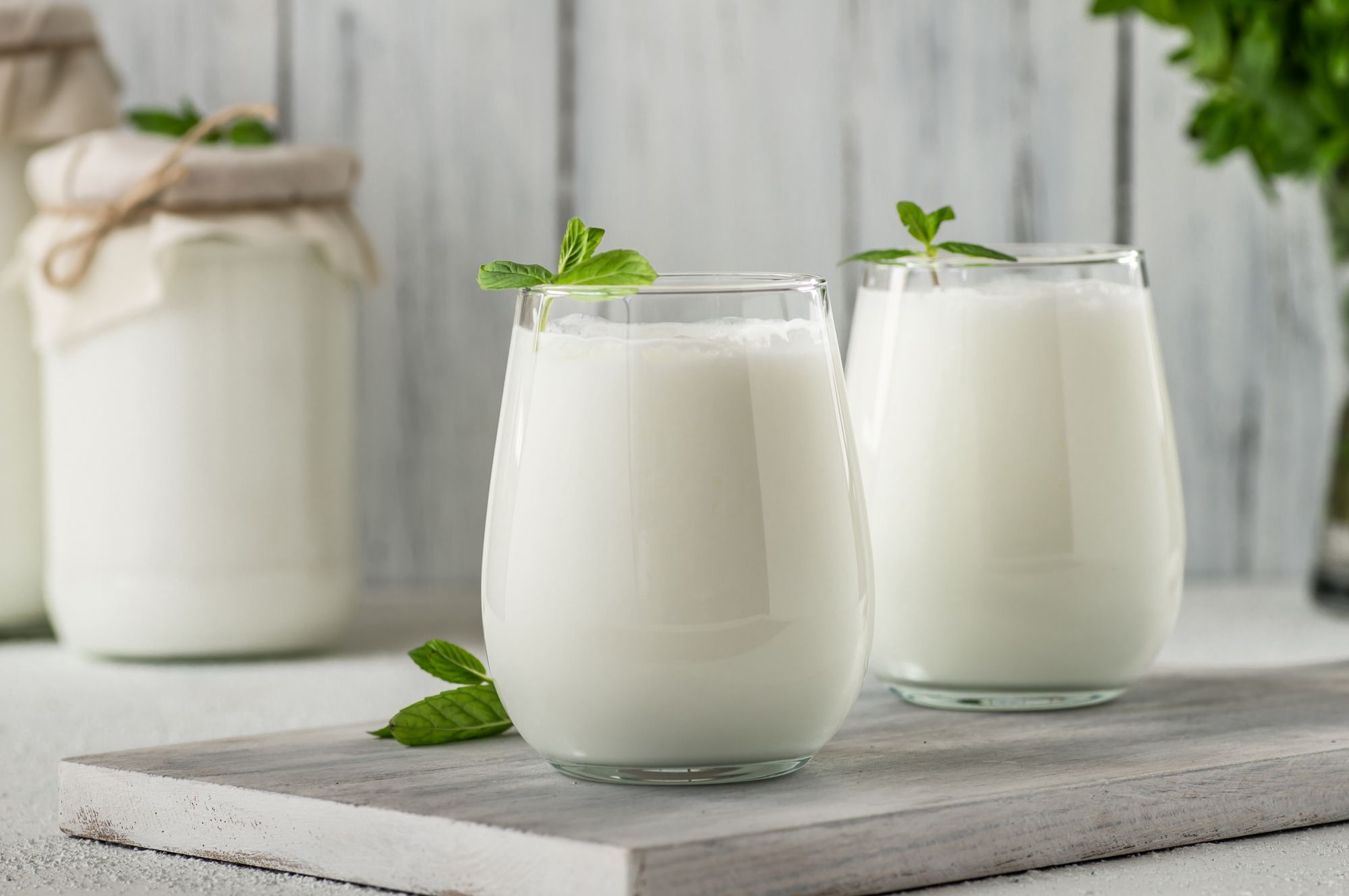
If you're seeking a refreshing change to your usual breakfast smoothie routine, consider incorporating kefir for a gut health upgrade.
According to Lauren Manaker, MS, RDN, LDN, CLEC, CPT, "Kefir is a fermented dairy beverage enriched with live bacteria, which aids in maintaining a healthy gut microbiota."
While similar to yogurt, kefir surpasses regular yogurt in probiotic content, containing three times more beneficial bacteria. A review published in Frontiers in Microbiology highlights how probiotic foods can influence the gut microbiota by introducing novel species or strains into the digestive system. They also promote the growth of existing beneficial microbes.
By incorporating kefir into your breakfast smoothie, you can introduce a diverse range of probiotics to support your gut health and well-being.
2) Walnuts
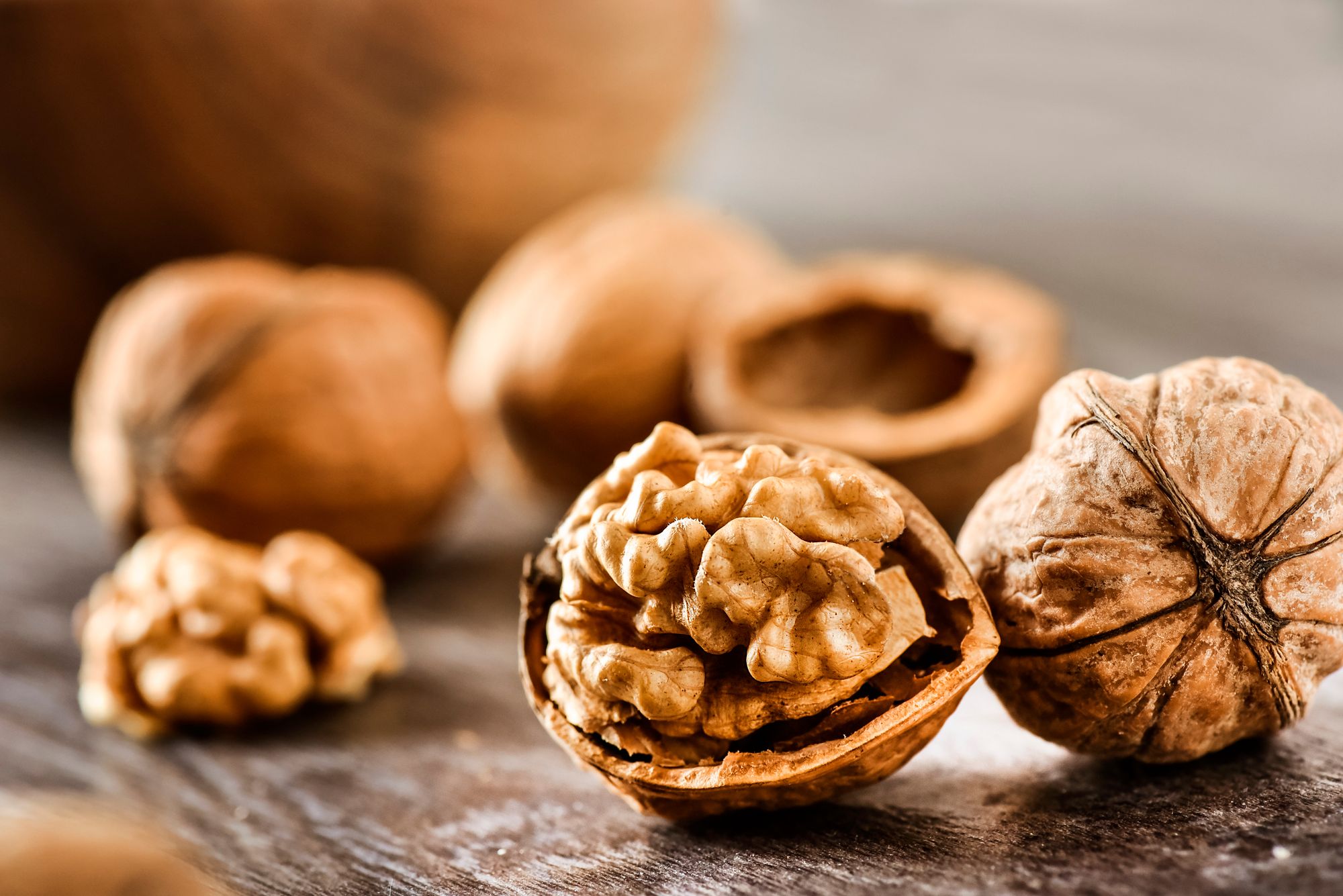
Whether you're seeking a delightful addition to your oatmeal, yogurt, or smoothies, walnuts are a versatile ingredient that can enhance your breakfast experience while supporting a healthy gut.
According to Lauren Manaker, "A study has revealed that consuming walnuts can have positive effects on the gut microbiome." She further explains, "Individuals who incorporated 42 grams of walnuts into their daily diet for three weeks experienced a reduction in secondary bile acids, which are associated with conditions such as colon cancer, inflammation, and gastrointestinal diseases."
Furthermore, the study found that walnut consumption led to an increase in beneficial gut bacteria, reinforcing its potential in nurturing a healthy gut environment.
3) Oatmeal
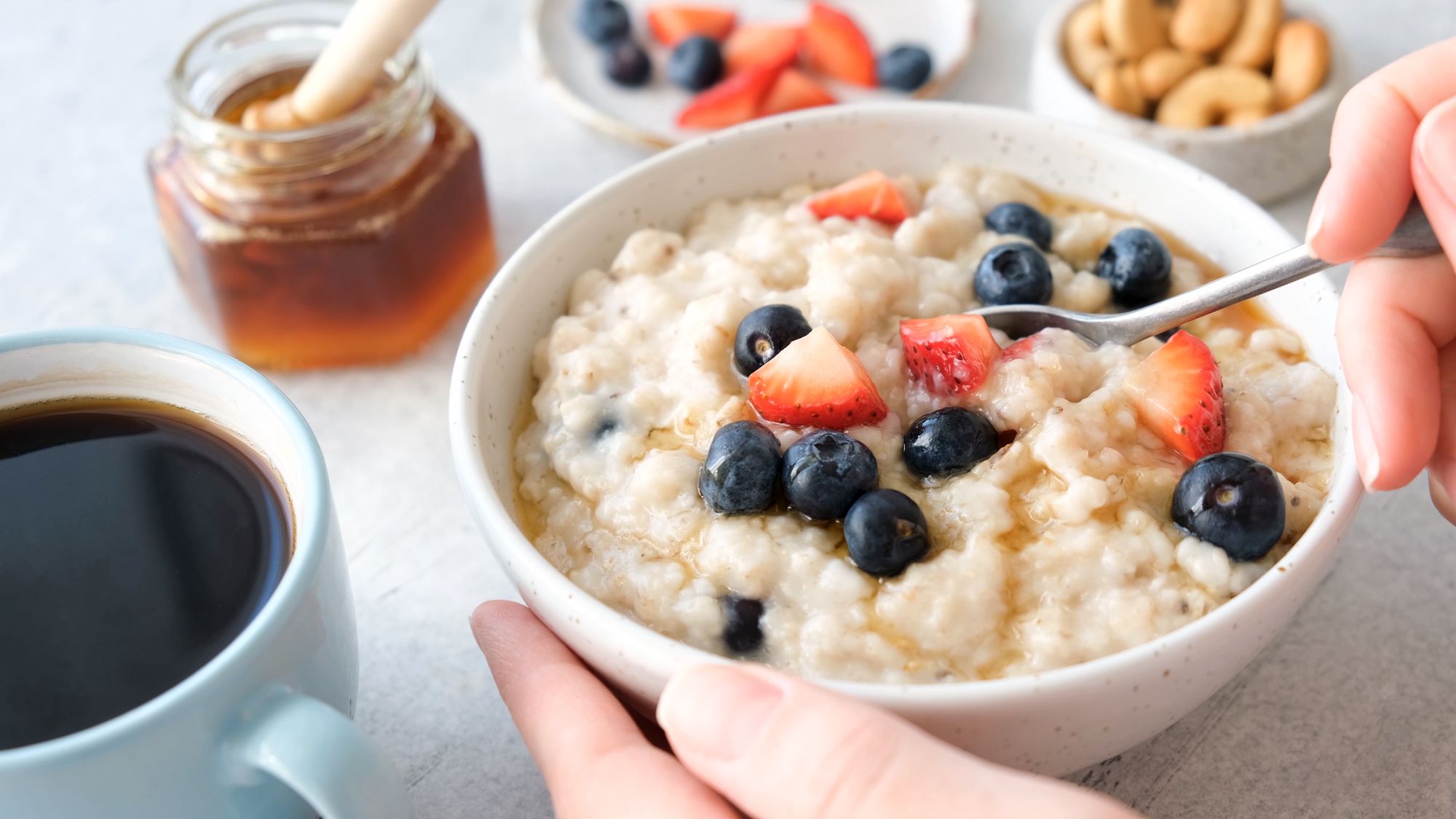
Renowned for its array of health benefits, including LDL cholesterol reduction and blood sugar control, oatmeal is a fantastic addition to your diet that can also positively impact your gut.
Oats, particularly steel-cut and rolled varieties, are exceptionally rich in beta-glucan, a fermentable soluble fiber. This fiber serves as a catalyst for the growth of beneficial bacteria, such as Bifidobacterium, which play a role in bolstering the immune system.
Molly Hembree, MS, RD, LD, advises, "When incorporating oats into your diet, opt for varieties with minimal to no added sugar."
4) Prunes
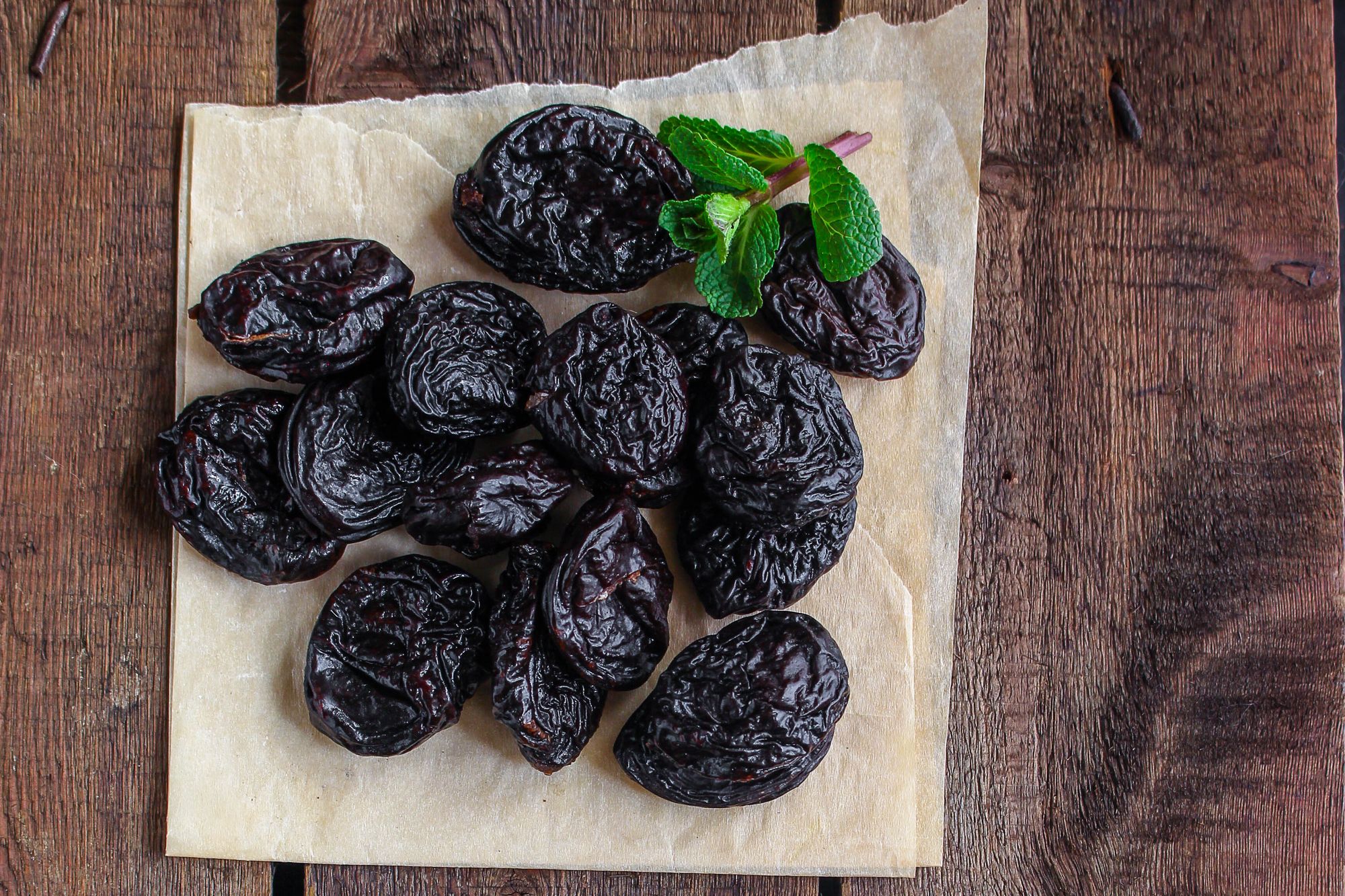
When it comes to promoting regularity and preventing constipation, prunes are your go-to morning ally," advise Tammy Lakatos Shames, RDN, CDN, CFT, and Lyssie Lakatos, RDN, CDN, CFT, popularly known as The Nutrition Twins. Prunes offer versatility, allowing you to incorporate them into your breakfast staples like oatmeal, cold cereal, or pancakes.
While the exact mechanism behind prunes' effectiveness is not fully understood, The Nutrition Twins believe it's a combination of factors. They attribute the positive impact to the presence of prebiotic fiber, antioxidants, and sorbitol—a slowly metabolized sugar alcohol. The prebiotic fiber plays a crucial role by nourishing the beneficial probiotic bacteria in your gut, while also reducing the risk of colon cancer.
5) Peaches

Indulge in the delightful sweetness of peaches as a tasty addition to your morning meal. Whether you prefer them mixed into yogurt, placed atop pancakes or waffles, or even used as a low-sugar spread on toast, peaches offer a delectable way to boost your fiber intake.
Peaches are particularly rich in insoluble fiber, a type of dietary fiber that attracts water into your stool. Molly Hembree explains, "Insoluble fiber contributes bulk and softness to your stool while gently promoting bowel regularity."
6) Banana-Topped Whole Grains
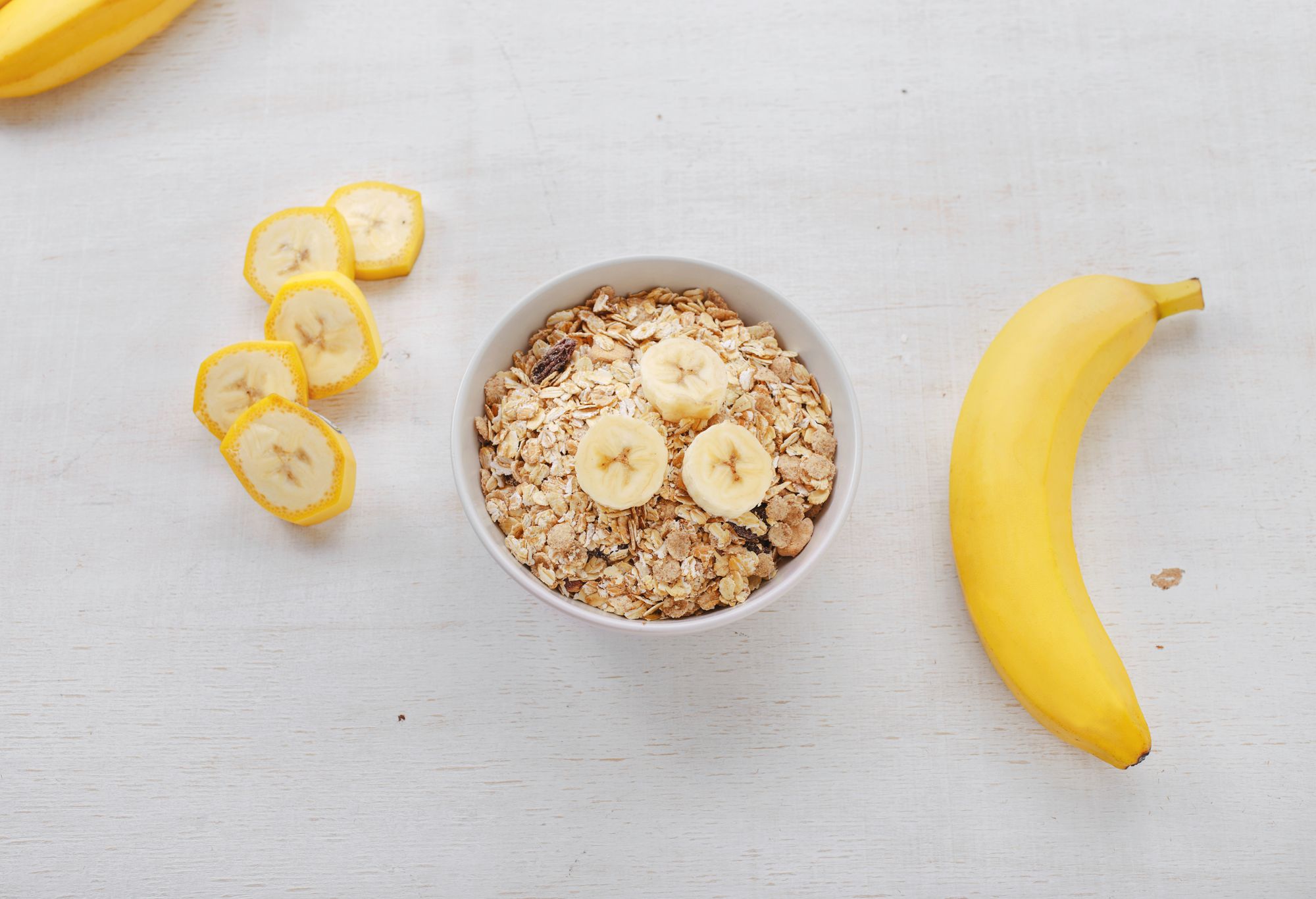
While staples like oatmeal and whole wheat are excellent breakfast choices, it's essential to diversify your options and embrace a broader range of whole grains.
Expand your palate with grains like barley, sorghum, and whole rye, as recommended by the Nutrition Twins. These grains are rich in fiber, including the non-digestible carbohydrate called beta-glucan, which is also found in oats. By incorporating these grains into your breakfast, you can support gut health and foster the growth of beneficial bacteria like lactobacilli, Bifidobacteria, and Bacteroidetes.
To further enhance the gut-friendly properties of your breakfast, consider adding slices of slightly green bananas. Bananas, especially when consumed before ripening, are a great source of prebiotic fiber. This prebiotic fiber provides nourishment for the beneficial probiotic bacteria in your gut, contributing to a healthier digestive system.
7) Beans
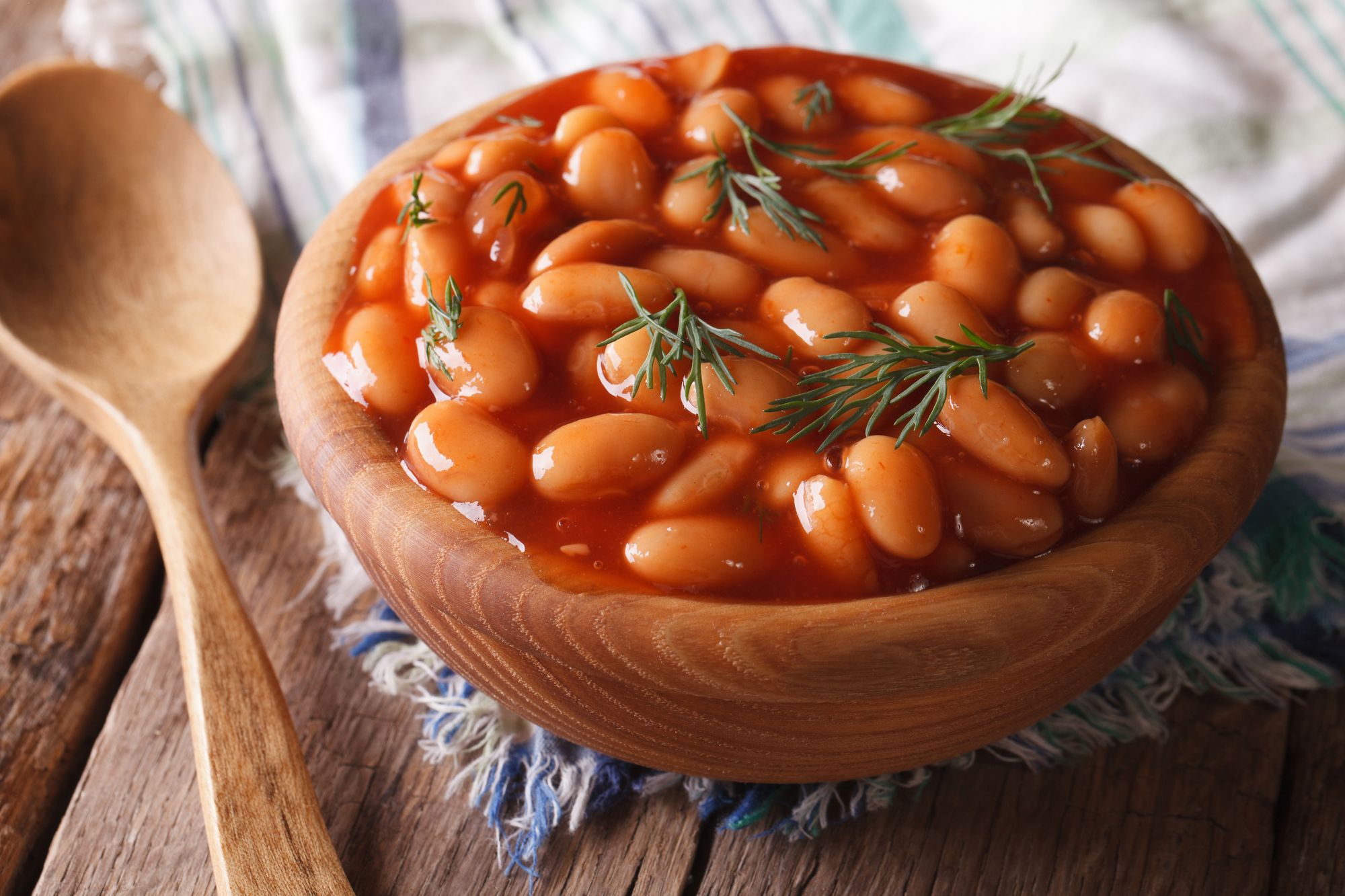
While beans may not be your typical breakfast fare, they are an excellent choice to kickstart your day with gut-healthy benefits.
Molly Hembree explains, "Beans are primarily a source of soluble fiber, which is digested slowly, promoting feelings of fullness."
The versatility of beans allows for endless creativity in the kitchen. They are incredibly easy to cook and can be incorporated into various dishes. For instance, consider adding black beans to your breakfast hash, blending cannellini beans into a spread for bread, or using Great Northern beans to create a creamy texture in fruit smoothies. You can even toss them into a flavorful black bean omelet for an extra protein boost.
8) Lemon Water

According to the Nutrition Twins, incorporating a refreshing glass of lemon water into your morning breakfast routine can have a positive impact on your digestion.
"The combination of water and the natural acidity of lemons aids digestion by assisting in the breakdown of food, allowing your body to effectively absorb essential nutrients. Additionally, it helps soften stool, enabling your digestive tract to start the day anew by eliminating waste and toxins from the intestines," explain the Nutrition Twins.
Lemons are also rich in potent polyphenols, micronutrients that safeguard the body's tissues against oxidative stress, including conditions such as cancer, coronary heart disease, and inflammation. Furthermore, these polyphenols appear to provide protective benefits to the microbiome, countering the effects of aging.
For added benefits, the Nutrition Twins suggest scooping some of the lemon's inner pulp into your water. This is where pectin, a fiber that stimulates a healthy microbiome and promotes the growth of probiotics like Bifidobacterium, can be found.

